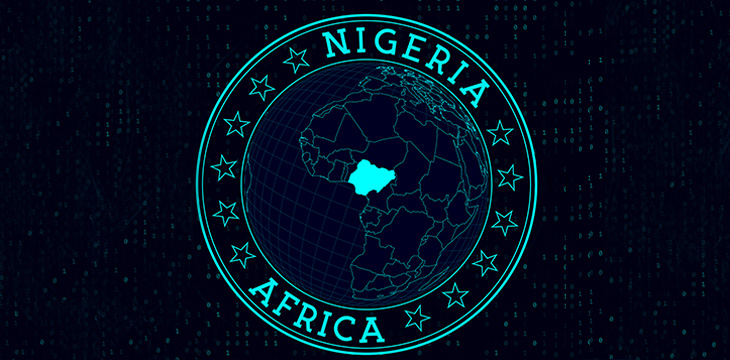News
Exploring the potential impact of authoritarian efficiency

The most recent episode of Bankless podcasts they discussed the potential benefits of authoritarian regimes in the 21st century. The argument stems from the idea that the Chinese and Russian governments allocate significant resources to promoting their narratives, while the US government takes a more hands-off approach.
In the episode, hosts Ryan Sean Adams and David Hoffman delve into the question of whether authoritarianism can prevail in liberal democracies, with insights from economist Noah Smith and Ethereum co-founder Vitalik Buterin.
The efficiency of authoritarian regimes as a threat to liberalism
Smith argues that liberal democracy was hailed as the optimal social model in the late 20th century, epitomized by Francis Fukuyama’s thesis “The End of History”. However, recent developments have called this triumphalism into question. The rise of China, perceived weaknesses in the United States, and the transformative impact of the Internet are central to this reassessment.
The role of the Internet is fundamental. Smith argues that liberal democracies historically excel at aggregating information through markets, elections, and public debate. However, the Internet’s ability to centralize large amounts of data potentially reduces this advantage. Authoritarian states can now leverage this data to gauge public sentiment, allocate resources more efficiently, and respond quickly to unrest, as demonstrated by China’s rapid policy changes following the 2022 “white paper protests.”
Furthermore, the Internet fosters information anarchy, facilitating the proliferation of disinformation. This scenario complicates governance in liberal democracies, where politicians spend a lot of time countering false narratives and raising funds, diminishing effective governance.
Buterin expands on this concept, comparing the information landscape to Thomas Hobbes’ concept of a “war of all against all,” in which monopolistic control over narratives might emerge as the only stable equilibrium. This metaphor highlights the potential for authoritarian regimes to exploit the internet’s capacity for data aggregation, transforming a tool designed for liberal empowerment into one that enforces centralized control.
Counterarguments to the Efficiency of Authoritarian Regimes
Smith and Buterin then explore counterarguments. Smith draws a parallel with the press, which lowered the costs of information and led to greater liberalism and social fragmentation rather than authoritarian dominance. He wonders why the Internet shouldn’t follow a similar trajectory.
However, Smith explains that the current situation implies nonlinearity. Initially, the reduction of information costs through technologies such as the printing press and the telegraph strengthened liberal democracies by improving the aggregation of information. As these costs approached zero, the benefits plateaued while the costs of disinformation and information warfare increased exponentially.
Buterin adds that centralized systems often excel at extraction rather than production, potentially outperforming more liberal systems in zero-sum conflicts. He points out that defining success solely by economic output may overlook broader impacts on human flourishing.
Buterin then considers the fundamental differences between the digital and physical worlds, particularly in terms of defense mechanisms. Digital defenses, such as cryptography and decentralized platforms, offer robust protections without physical analogues, suggesting an inherent resistance to totalizing control in the digital sphere.
Furthermore, Buterin notes that fragmenting the Internet into smaller, more specialized communities could mitigate the negative impacts of information warfare. These fragmented spaces often maintain a higher quality of discourse than large, chaotic platforms like Twitter.
Buterin said:
«Twitter is the worst thing you can see, and it is the worst thing precisely because you can see it clearly if you think, for example, of private group chats.
Private group chats consistently maintain higher levels of quality and high levels of productive discourse on smaller social media platforms, be it Farcaster or whatever they maintain higher levels of discourse.
He then pointed to a 2022 article by Smith that discussed how The Internet Wants to Be Fragmented.
Smith acknowledges this point, agreeing that reducing reliance on large, controversial platforms could reduce the social costs associated with information tournaments by allowing for more constructive and focused discussions within smaller, more coherent groups.
Despite these reassurances, Smith raises concerns about the global reach of authoritarian influence, particularly through hard-edged power tactics. He highlights how China uses economic leverage to influence foreign companies and governments, blurring national lines in the digital space. This ongoing cross-border information warfare presents a unique challenge distinct from traditional physical conflicts.
How blockchain could save democracy
During the discussion, Noah Smith raised the question of whether blockchain technology could enable secure communication between citizens in authoritarian states such as China and Russia. He wonders whether there are ways for people to speak freely and anonymously about political issues, bypassing government surveillance and censorship.
Vitalik Buterin responds by highlighting the work of a company called Rarimo, based in Kiev. It has developed a tool called “Instrument of freedom”, which uses zero-knowledge proof technology to allow Russian citizens to prove their citizenship and participate in online voting without revealing their identities.
This system ensures that the results are tamper-proof and visible, creating a form of anonymous and censorship-resistant voting. Buterin sees this as an example of how blockchain and zero-knowledge proofs can provide both privacy and trustworthiness, potentially creating a more secure and resilient infosphere against centralized and decentralized cyberattacks.
Buterin acknowledges that while blockchain technology may not be necessary for Americans to communicate, it may be crucial for people in authoritarian states to have secure, private conversations about their political situations. This technological capability could help foster internal dissent and democratization efforts within these regimes by providing a safe space for dialogue and organization.
Smith appreciates this perspective and sees potential in developing tools that make the Internet landscape more conducive to pluralism, where multiple groups can interact in productive ways. The idea is not to play a cat-and-mouse game with oppressive regimes, but to create robust systems that support healthy information ecosystems, allowing diverse voices to be heard without fear of reprisal.
In conclusion, blockchain technology, with its ability to provide secure, anonymous communications and verifiable voting mechanisms, offers promising avenues for supporting democratic movements and safeguarding freedoms in authoritarian contexts.
By leveraging these technologies, it may be possible to counteract some of the disadvantages liberal democracies face in the digital age, ensuring that democracy can continue to thrive even in challenging contexts.
Ultimately, the discussion highlights the complexity of predicting long-term outcomes in the face of rapid technological advances. While the potential for authoritarian regimes to exploit these technologies is significant, the inherent adaptability and resilience of liberal democracies should not be underestimated. The future remains uncertain, shaped by the interaction between technological capabilities, political structures and social values.
Mentioned in this article
News
Blockchain Technology Will Transform Water Access and Management Globally

Disclosure: The views and opinions expressed here are solely those of the author and do not represent the views and opinions of the crypto.news editorial team.
Access to clean water is a basic human need, yet billions of people around the world still struggle to get it. According to the World Health Organization, over 2 billion people live in countries suffering from severe water stress, and this number is expected to continue to grow due to climate change and population growth.
Traditional water management systems have struggled to address these challenges, often hampered by inefficiencies, lack of transparency, and misallocation of resources. Blockchain technology offers a promising solution to these challenges, providing equitable access and sustainable use of this crucial resource.
The current state of water management
Water management today faces several pressing issues. Inefficiencies in water supply, distribution, and use, coupled with a lack of real-time monitoring, often result in resource waste and misallocation. Many water sources fail to realize their full potential due to infrastructure and financing shortfalls. For example, the Environmental Protection Agency (EPA) report indicated that the United States would need to invest $625 billion over the next 20 years to repair, maintain and improve the country’s drinking water infrastructure due to aging pipes and other infrastructure problems. Additionally, in the United States alone, household leaks can to waste nearly 900 billion gallons of water per year nationwide. This is equivalent to the annual domestic water consumption of nearly 11 million homes.
Furthermore, corruption and mismanagement of water resources can cause unequal distribution, with disadvantaged communities often bearing the brunt of water scarcity. For example, South Africa is struggling with myriad challenges to its water security: drought, inadequate water conservation measures, outdated infrastructure, and unequal access to water resources. The country faces significant water scarcity, with demand expected to outstrip supply by 2030, creating a projected gap of 17%.
Furthermore, the global water industry is highly monopolized, with a few key players controlling a significant share of the market. These companies exert substantial influence over the water supply chain, often prioritizing profit over equitable distribution and environmental responsibility. This concentration of power can lead to inflated prices and limited access for vulnerable populations. The global bottled water market alone is projected to reach $509.18 billion by 2030, with these large companies capturing a significant share of revenue. This monopolization exacerbates existing inequalities in water access and highlights the need for more decentralized and community-driven water management solutions.
Source: Grand View Search
The potential of blockchain in water management
Blockchain technology can address these issues by providing a transparent, secure, and decentralized platform for water resource management. This approach offers several advantages:
- Transparency and accountability. Blockchain’s immutable ledger ensures that all transactions and data entries are transparent and cannot be changed once recorded. This transparency can reduce corruption and ensure that water resources are allocated fairly and efficiently. For example, blockchain can be used to track water usage from source to end user, providing a clear record of how water is distributed and used. This level of transparency can help hold authorities accountable and manage water resources sustainably.
- Efficient resource management. Blockchain can facilitate the creation of smart contracts, which are self-executing contracts with the terms of the agreement written directly into the code. These contracts can automate water distribution based on real-time data, directing water to where it is needed most. For example, smart contracts could be used to manage urban water supply systems, automatically adjusting water distribution based on real-time consumption patterns and demand. This can help optimize water use, reduce waste, and ensure that households and businesses receive the right amount of water at the right time.
In Dubai, the Dubai Electricity and Water Authority (DEWA) has implemented a blockchain-based smart water network initiative as part of its broader smart city strategy. This project integrates blockchain technology with IoT sensors to monitor water usage in real time, manage distribution, and detect leaks. The decentralized ledger ensures data integrity and transparency, enabling more efficient water management and reduced waste. DEWA’s initiative aims to improve sustainability and resource management in the rapidly growing city, highlighting the potential of blockchain to support urban water management and conservation efforts.
Community participation and ownership
Through blockchain, individuals can directly control and monetize their access to water resources, eliminating the need for third-party intermediaries. This direct control model allows local communities to make collective and transparent decisions about their water use. By managing their water directly from the source, communities can tailor water management practices to their specific needs, promoting equitable distribution and encouraging a sense of accountability and stewardship.
Additionally, future models could allow people to monetize their access to water through web3 technologies. For example, a community-to-business (C2B) model could allow people to sell water directly to companies. In this model, people do not have to own the water directly, but can profit by staking their tokens during event sales pools. This approach not only supports sustainable water management, but also creates economic opportunities for community members. Additionally, a “Burn to Secure” protocol can be used to provide water allocation rights. This protocol provides a true sense of water security and financial opportunity by allowing people to redeem their rights. This system not only secures future water allocations, but also increases token scarcity and value.
Additionally, a pure sense of investment is achieved through investments in water sources. This leads to potential financial returns and dividends by addressing the inefficiencies in water supply mentioned above. By investing to finance infrastructure projects, such as building factories and improving distribution systems, more water can be brought to communities, creating additional economic opportunities.
Monetizing water access through the C2B model, the “Burn to Secure” protocol, and investments in water sources all generate economic benefits for the community, promoting a more equitable and efficient water management system.
Overcoming challenges
While blockchain technology has the potential to improve water management, there are challenges to its adoption. The complexity of blockchain systems and the need for technological infrastructure can be barriers, especially in developing regions. Additionally, there are concerns about the significant energy consumption of blockchain networks. However, technological advances and the development of more energy-efficient blockchain solutions are helping to alleviate these concerns. Additionally, education and capacity building are key to ensuring stakeholders understand how to effectively use blockchain technology. Governments, NGOs, and private sector partners need to work together to provide training and support to communities and water management authorities.
Blockchain technology offers a practical and effective means to improve water management. In addition to addressing inefficiencies, blockchain empowers communities, promotes sustainable practices, and opens up new economic opportunities through models like community-to-business (C2B). As we face the growing challenges of climate change and population growth, blockchain is not only an innovative solution, but represents a fundamental shift in the way we manage and value water resources. Adopting blockchain in water management is essential to creating a sustainable and equitable future by changing the way we interact with and protect our most vital resource.

Jean-Hugues Gavarini
Jean-Hugues Gavarini is the CEO and co-founder of LAKE (LAK3), a real-world asset company leveraging blockchain technology to decentralize access to the global water economy. LAKE aims to ensure access to clean water for all, protect water resources, and deliver water to those in need through innovative technologies. Jean-Hugues has a diverse career spanning the luxury, fashion, and footwear industries. His career path includes notable successes at Mellow Yellow, Cremieux, and Tod’s. Raised between Silicon Valley and the French Alps, Jean-Hugues has always been immersed in technology and freshwater resources. In 2018, Jean became the CEO of Lanikea Waters, a water solutions entity based in the French Alps. In 2019, the concept of LAKE was born, embodying his commitment to innovation and sustainability.
News
Blockchain and AI Expo 2024

With rapid advances in the world of AI and blockchain, there are opportunities to leverage the security and transparency features of blockchain to improve the reliability and trust of AI systems and data transactions.
Explore the synergy of these advanced technologies in virtual mode Blockchain and AI Expowhich takes place on October 31, 2024 TO 10:00 GMT.
The event features cutting-edge presentations led by leading experts in evolving fields. Presentations are set to explore opportunities and challenges in the fusion of blockchain and AI, real-world applications, ethics, innovations in environmental sustainability, and more!
Gain a comprehensive understanding of how these technologies can synergistically drive innovation, optimize operations, and promote strategic growth opportunities. Develop your knowledge to facilitate informed decision making and give your company a competitive edge in the growing technology landscape.
News
Nigeria Eyes National Blockchain Nigerium for Data Sovereignty

Nigeria is keeping an eye on a new native blockchain network to protect the country’s data sovereignty.
According to local media, a team from the University of Hertfordshire has proposed the new blockchain, Nigeriato the National Information Technology Development Agency (NITDA).
Chanu Kuppuswamy, who leads the team, argued that relying on blockchain networks whose developers are located in other regions poses national security risks to the Nigerian government. He further said that Nigerium would allow the West African nation to customize the network to meet specific needs, while also promoting data sovereignty.
In his presentation, Chanu cited the recent migration of Ethereum to test of participation (PoS) consensus as an instance in which no Nigerians were involved but whose impact is far-reaching.
“Developing an indigenous blockchain like Nigerium is a significant step towards achieving data sovereignty and promoting trust in digital transactions in Nigeria,” he said.
While receiving the proposals in Abuja, NITDA’s Kashifu Abdullahi acknowledged the benefits a local blockchain would bring to Nigeria, including increased security of citizens’ data.
However, a NITDA spokesperson later clarified that Nigerium is still at the proposal stage and that the government has not yet decided whether to proceed or not.
“The committee is still discussing the possibility with stakeholders. Even if a decision is finally made, there is no guarantee that the name will be Nigerium,” the spokesperson told the media.
Nigerium’s reception in the country has been mixed. Some, like financial analyst Olumide Adesina, To say the network is “dead on arrival”. He believes the Nigerian government’s poor record in following through on its big technology plans will claim another victim. He pointed to the eNaira as a missed opportunity whose chances of success were much higher than those of Nigerium.
Others welcomed the proposal. Chimezie Chuta, who chairs the renewed The Nigerian Blockchain Policy Committee is “extremely optimistic“that Nigerium will be more successful than eNaira.
Speaking to a local news agency, Chuta stressed that eNaira failed because the central bank initiated the project on its own, without involving any stakeholders.
“They just cooked it and expected everyone to like it. [With Nigerium]there will be a lot of collaboration,” he said.
Registration of property title, digital identity and Certificate Verification are among the use cases that Nigerium is expected to initially target. However, Nigeria has already made progress in some of these fields through public blockchains.
SPPG, a leading school in governance and politics, announced in May the country’s first blockchain certificate verification system. Built on the The BSV BlockchainIt was developed in collaboration with the blockchain data recording company VX Technologies and local lender Sterling Bank.
Watch: The Future Has Already Arrived in Nigeria
 Italian: https://www.youtube.com/watch?v=M40GXUUauLU width=”560″ height=”315″ frameborder=”0″ allowfullscreen=”allowfullscreen”>
Italian: https://www.youtube.com/watch?v=M40GXUUauLU width=”560″ height=”315″ frameborder=”0″ allowfullscreen=”allowfullscreen”>
New to blockchain? Check out CoinGeek Blockchain for Beginners section, the definitive guide to learn more about blockchain technology.
News
Cambodian CBDC Developer to Build Palau Bond Market on Blockchain: Report

A Japanese fintech developer will build a blockchain-based bond market gateway for Palau, aiming to launch a trial in 2024 and a full launch the following year.
Japanese fintech developer Suramitsubest known for developing a central bank digital currency (CBDC) for Cambodia, is intended to build a Blockchain-gateway to the bond market based on the Pacific island nation of Palau, Nikkei He learned.
Soramitsu won the contract and plans to introduce the market on a trial basis in fiscal 2024, with a full launch scheduled for the following year, allowing the Palauan government to issue bonds to individual investors and efficiently manage principal and interest payments, according to the report.
The total cost of the project is estimated at several hundred million yen ($1.2 million to $5.6 million), less than half the cost of a non-blockchain alternative, people familiar with the matter said. The project has reportedly received support from Japan’s Ministry of Economy, Trade and Industry, with Japan’s foreign and finance ministries providing strategic and management advice on the project.
Soramitsu’s successful development of Cambodia’s CBDC in 2020 has boosted its reputation, with the digital currency’s popularity soaring, with over 10 million accounts opened by December 2023, representing 60% of Cambodia’s population. Following this, Cambodia’s central bank governor Chea Serey indicated intends to expand the reach of its CBDC internationally, particularly through collaboration with UnionPay International, the Chinese card payment service, and other global partners.
While Soramitsu’s work in Cambodia has been well received, the long-term popularity of CBDCs remains to be seen. As of late June, crypto.news reported a sharp drop in activity in India’s digital currency, the e-rupee, after local banks stopped artificially inflating its values.
According to people familiar with the matter, the Reserve Bank of India managed to hit the 1 million retail transaction milestone last December only after the metrics were artificially infiltrated by local banks, which offered incentives to retail users and paid a portion of the bank’s employees’ salaries using the digital currency.
-

 News1 year ago
News1 year ago“Captain Tsubasa – RIVALS” launches on Oasys Blockchain
-

 Ethereum1 year ago
Ethereum1 year agoComment deux frères auraient dérobé 25 millions de dollars lors d’un braquage d’Ethereum de 12 secondes • The Register
-

 News1 year ago
News1 year agoSolana ranks the fastest blockchain in the world, surpassing Ethereum, Polygon ⋆ ZyCrypto
-

 Videos1 year ago
Videos1 year agoHistoric steps for US cryptocurrencies! With a shocking majority vote!🚨
-

 Videos1 year ago
Videos1 year agoIs Emorya the next gem💎 of this Bitcoin bull run?
-

 News1 year ago
News1 year agoSolana Surpasses Ethereum and Polygon as the Fastest Blockchain ⋆ ZyCrypto
-

 Videos1 year ago
Videos1 year agoNexus Chain – Ethereum L2 with the GREATEST Potential?
-

 Ethereum1 year ago
Ethereum1 year agoScaling Ethereum with L2s damaged its Tokenomics. Is it possible to repair it?
-

 News1 year ago
News1 year agoFnality, HQLAᵡ aims to launch blockchain intraday repositories this year – Ledger Insights
-

 Regulation1 year ago
Regulation1 year agoFinancial Intelligence Unit imposes ₹18.82 crore fine on cryptocurrency exchange Binance for violating anti-money laundering norms
-

 Bitcoin1 year ago
Bitcoin1 year agoBitcoin Drops to $60K, Threatening to Derail Prices of Ether, Solana, XRP, Dogecoin, and Shiba Inu ⋆ ZyCrypto
-

 News1 year ago
News1 year agoSendBlocks Debuts with Major Support to Improve Blockchain Data Management










